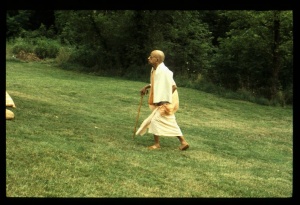CC Antya 20.52 (1975): Difference between revisions
(Vanibot #0027: CCMirror - Mirror CC's 1996 edition to form a basis for 1975) |
(Vanibot #0020: VersionCompareLinker - added a link to the Version Compare feature) |
||
| Line 2: | Line 2: | ||
<div style="float:left">'''[[Sri Caitanya-caritamrta (1975)|Śrī Caitanya-caritāmṛta (1975)]] - [[CC Antya (1975)|Antya-līlā]] - [[CC Antya 20 (1975)|Chapter 20: The Śikṣāṣṭaka Prayers]]'''</div> | <div style="float:left">'''[[Sri Caitanya-caritamrta (1975)|Śrī Caitanya-caritāmṛta (1975)]] - [[CC Antya (1975)|Antya-līlā]] - [[CC Antya 20 (1975)|Chapter 20: The Śikṣāṣṭaka Prayers]]'''</div> | ||
<div style="float:right">[[File:Go-previous.png|link=CC Antya 20.51 (1975)|Antya-līlā 20.51]] '''[[CC Antya 20.51 (1975)|Antya-līlā 20.51]] - [[CC Antya 20.53 (1975)|Antya-līlā 20.53]]''' [[File:Go-next.png|link=CC Antya 20.53 (1975)|Antya-līlā 20.53]]</div> | <div style="float:right">[[File:Go-previous.png|link=CC Antya 20.51 (1975)|Antya-līlā 20.51]] '''[[CC Antya 20.51 (1975)|Antya-līlā 20.51]] - [[CC Antya 20.53 (1975)|Antya-līlā 20.53]]''' [[File:Go-next.png|link=CC Antya 20.53 (1975)|Antya-līlā 20.53]]</div> | ||
{{CompareVersions|CC|Antya 20.52|CC 1975|CC 1996}} | |||
{{RandomImage}} | {{RandomImage}} | ||
==== TEXT 52 ==== | ==== TEXT 52 ==== | ||
<div class="verse"> | <div class="verse"> | ||
:nā gaṇi āpana-duḥkha, | :nā gaṇi āpana-duḥkha, sabe vāñchi tāṅra sukha, | ||
:tāṅra | :tāṅra sukha--āmāra tātparya | ||
:more yadi diyā duḥkha, | :more yadi diyā duḥkha, tāṅra haila mahā-sukha, | ||
:sei | :sei duḥkha--mora sukha-varya | ||
</div> | </div> | ||
| Line 27: | Line 26: | ||
<div class="translation"> | <div class="translation"> | ||
"I do not mind My personal distress. I only wish for the happiness of Kṛṣṇa, for His happiness is the goal of My life. However, if He feels great happiness in giving Me distress, that distress is the best of My happiness. | |||
</div> | </div> | ||
Latest revision as of 00:47, 27 January 2020

A.C. Bhaktivedanta Swami Prabhupada
TEXT 52
- nā gaṇi āpana-duḥkha, sabe vāñchi tāṅra sukha,
- tāṅra sukha--āmāra tātparya
- more yadi diyā duḥkha, tāṅra haila mahā-sukha,
- sei duḥkha--mora sukha-varya
SYNONYMS
nā—not; gaṇi—I count; āpana-duḥkha—own personal misery; sabe—only; vāñchi—I desire; tāṅra sukha—His happiness; tāṅra sukha—His happiness; āmāra tātparya—the aim of My life; more—unto Me; yadi—if; diyā duḥkha—giving distress; tāṅra—His; haila—there was; mahā-sukha—great happiness; sei duḥkha—that unhappiness; mora sukha-varya—the best of My happiness.
TRANSLATION
"I do not mind My personal distress. I only wish for the happiness of Kṛṣṇa, for His happiness is the goal of My life. However, if He feels great happiness in giving Me distress, that distress is the best of My happiness.
PURPORT
Śrīla Bhaktisiddhānta Sarasvatī Ṭhākura says that a devotee does not care about his own happiness and distress; he is simply interested in seeing that Kṛṣṇa is happy, and for that purpose he engages in various activities. A pure devotee has no way of sensing happiness except by seeing that Kṛṣṇa is happy in every respect. If Kṛṣṇa becomes happy by giving him distress, such a devotee accepts that unhappiness as the greatest of all happiness. Those who are materialistic, however, who are very proud of material wealth and have no spiritual knowledge, like the prākṛta-sahajiyās, regard their own happiness as the aim of life. Some of them aspire to enjoy themselves by sharing the happiness of Kṛṣṇa. This is the mentality of fruitive workers who want to enjoy sense gratification by making a show of service to Kṛṣṇa.